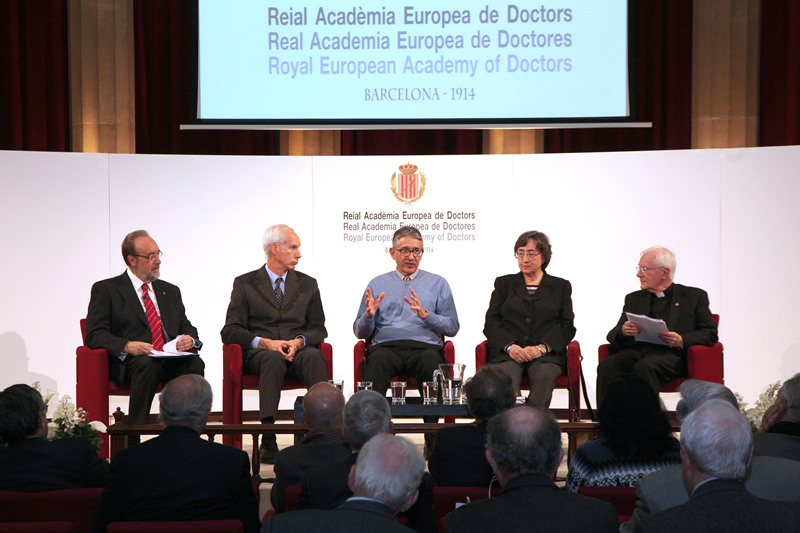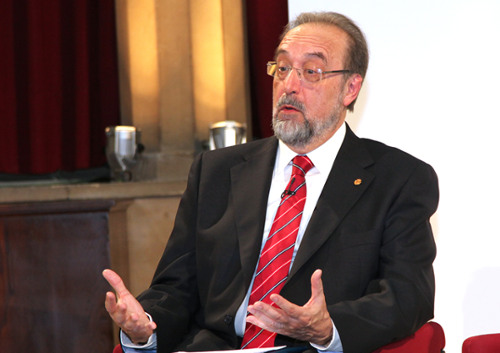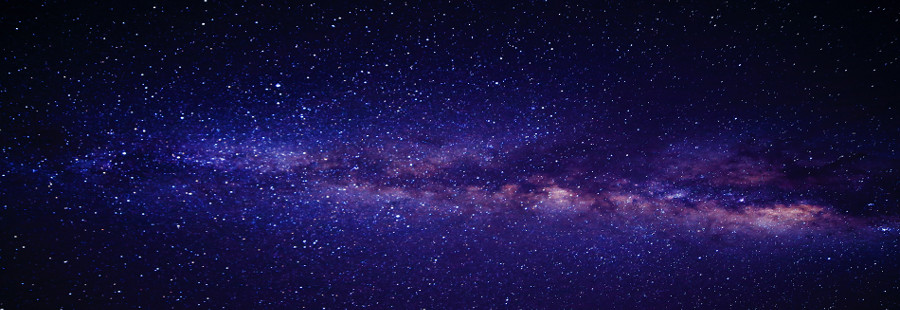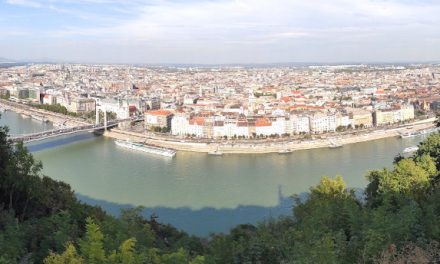Mathematics has been able to assume infinity, physics tries to show that space is finite, philosophy and theology offer different answers

Daniel Turbón, David Jou, Antoni Prevosti,Pilar Bayer and Josep Ignasi Saranyana
The infinite as a concept and as reality. The Royal European Academy of Doctors-Barcelona 1914 (RAED) tried to answer the myriad questions that arise about infinity during a multidisciplinary academic session that was held on 30 November in Barcelona under the title “Las nociones de infinito” (The notions of the infinite). The event was attended by Pilar Bayer, professor emeritus of Algebra at the University of Barcelona (UB) and full academician of the RAED; David Jou, professor of Condensed Matter Physics at the Autonomous University of Barcelona, full academician and member of the Board of Governors of the RAED; Antoni Prevosti, professor of Philosophy and vice-dean of the Faculty of Philosophy of the UB, and Josep Ignasi Saranyana, professor emeritus of History of Theology of the University of Navarra, full academician and president of the Section of Human Sciences of the RAED. The act was directed and moderated by Daniel Turbón, professor emeritus of Physical Anthropology at the UB and full academician of the RAED, who highlighted the enriching role of a debate raised from different orbits of knowledge.
“To the two classical questions of philosophical cosmology -the universe, is it finite or infinite in space? and is it finite or infinite in time?- modern physical cosmology adds a third question: is the density of the universe finite? or is it infinite over time? The three issues are still the subject of debate”, Jou began his speech. The academician concluded that although physics doesn’t have a definitive answer, experimentation on observable details such as the curvature of space, the structure of the fluctuations of microwave background radiation or the masses of quarks and the Higgs boson could lead to new points of view on this question, especially if it becomes possible to verify that the universe is finite.

Dr. Daniel Turbón Borrega
Prevosti, for his part, tried to situate the debate on the apprehension by the human being of the infinite. “If our understanding must have some infinite dimension, even if it’s potential, to be able to understand notions such as infinite, it will not be in the sense of a quantitative infinite, which implies a journey that never ends, but in the sense in which we say that a unitary act is infinite, that it doesn’t imply a journey, and that it is therefore the infinite proper to form”, he explained.
Bayer noted how mathematics has been able to systematise and use the concept, nowadays common. “Mathematical infinity has many meanings, depending on which is the time and the mathematical area considered. In most cases, clarifying the concept of infinity to make it suitable for its theoretical treatment and for its practical use has required many centuries and the contest of many minds that have made possible a comfortable handling of infinity in mathematical practice without fear of incurring erroneous calculations”, she explained.
From a philosophical and theological point of view, Saranyana reviewed the main theories throughout history to conclude that, to this day, “theology, as well as philosophy, distinguishes between the logical or intentional order and the extramental order. And the notion of infinity is situated, for theology, in the logical order”. The academician considered the infinite God of second scholasticism and theism to be, in fact, an abstract and empty concept. The Living God, on the the other hand, is a totally perfect, accessible and paternal figure.
Turbón ended up concluding that reality is governed by four dimensions. Three belong to physical space and the other to time. “Just as we can move freely in the first three dimensions, the same thing doesn’t happen with time, of which we are prisoners in the present”, he said. A peculiarity that for now is considered insurmountable and that it limits us the knowledge of infinity.



